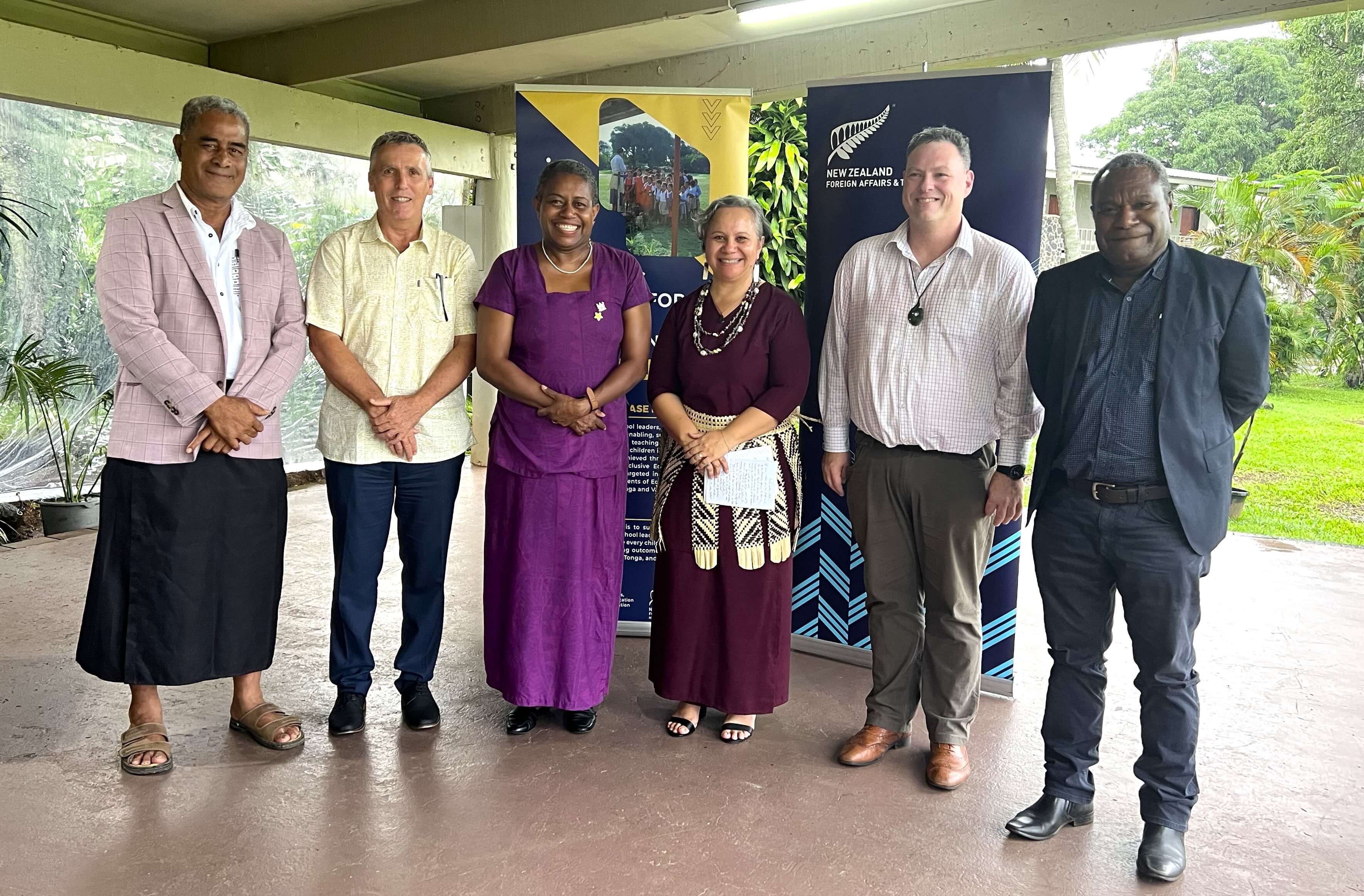Related News

Nadi, March 13 – In a significant step to progress the Pacific’s commitment to inclusive education, Build Teaching Capacity in Inclusive Education Phase 2 was officially launched as ‘Tupu’/‘Tubu’ by Pacific Education leaders yesterday in Nadi.
Drawing from the region’s rich cultural heritage, ‘Tupu’, which means ‘to grow’ or ‘to develop’, symbolises the collective commitment towards nurturing an inclusive educational environment where every individual could flourish and thrive.
‘Tupu’ is implemented by the Institute of Education at The University of the South Pacific, with the New Zealand Ministry of Foreign Affairs and Trade as its donor partner.
During the launch event, Dr Seu’ula Johansson-Fua, Director of the Institute of Education, highlighted the significance of the naming process. Drawing parallels to the Pacific tradition of naming children, Dr Johansson-Fua emphasised the importance of entrusting the task of naming to individuals who would protect, honour, and nurture the child.
“It’s in the act of naming that we claim it is ours,” she said.
Speaking at the launch, Chief Executive Officer of Tonga Ministry of Education, Mr Isikeli Oko, said the launch germinated the seed for inclusive education to grow in the five Pacific Island Countries part of the project, namely, Fiji, Tonga, Niue, Cook Islands and Vanuatu.
“Building teacher capacity in inclusive education is fundamental to education development in the Pacific,” he said.
“Our engagement in Tupu will ensure the achievement of Sustainable Development Goal 4 (Quality Education).
“With the completion of Phase 1, and now moving to Phase 2, I realise that that inclusiveness of the project is much broader in the sense that we not only target the children with disabilities, children living in rural areas or marginalised groups, but we also pursued school leaders, teachers, teacher aids, parents and communities, we include all stakeholders in the communities.
“That is the spirit of inclusiveness,” Mr Oko said.
The Fiji Ministry of Education Permanent Secretary, Ms Selina Kuruleca, said the Tubu project would target school leaders, teachers and teacher aides to create an enabling, supportive and inclusive environment for teaching and learning.
“This phase is particularly for the children in the five Pacific Islands Countries and will be achieved through a whole school approach to inclusive education.”
Ms Kuruleca said the activities would be targeted and integrated into the school system, embedded into activities some of the schools were already doing.
“I know our children who have often missed out will be happy; we have frequently overlooked special and inclusive education. Our anticipation and intent are that this new program will be a well-used resource for the Pacific Island Countries.”
Expressing New Zealand’s pride in being part of the initiative, Mr Shane Coleman, Senior Education Advisor for the New Zealand Ministry of Foreign Affairs and Trade, said the Tupu initiative would allow teachers to learn new skills to support students in their classrooms who need learning support.
“It is such an important education initiative to help those kids right on the edges that we don’t always remember,” he said.
As ‘Tupu’ Phase 2 embarks on its journey, it carries the aspirations of Pacific communities, united in their dedication to creating inclusive learning environments where every student can flourish.